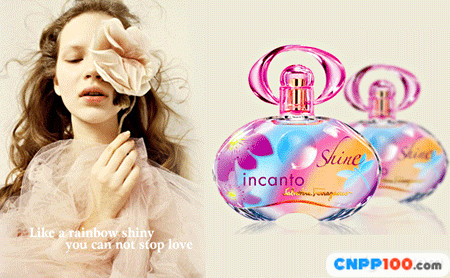
Founded in 1927, it is an internationally renowned "Made in Italy" luxury brand, an international high-end handmade shoe brand that emphasizes both practicality and style, and a well-known enterprise in the global luxury industry
Founded in 1927, Salvatore Ferragamo is an internationally renowned "Made in Italy" luxury brand. Today, Salvatore Ferragamo is one of the world's leading designers, manufacturers and distributors of high-end footwear, leather goods, accessories, fragrances and men's and women's clothing. Salvatore Ferragamo is a brand that combines creativity and innovation in the classic and exceptional shoemaking process with excellence and quality in its own shoemaking skills. Ferragamo's shoes, shirts and accessories such as silk scarves exude a sense of elegance and elegance, but no matter how creative his design ideas may be, he has always believed in the importance of both practicality and style, and this is especially true when it comes to shoe design.
Salvatore Ferragamo, the eponymous label of the first generation of shoe kings, has survived the global recession and the Second World War since 1927, and has become an enduring classic fashion brand today.
Salvatore Ferragamo, born in Bonito, a small town in Naples, southern Italy, to a family of 14 siblings, although Salvatore dropped out of school at the age of nine, he became an apprentice shoemaker at the age of 11 and opened a shop at the age of 13 to set up a prelude to his shoemaking legend.
Salvatore Ferragamo then went to Santa Barbara, California, to open a shoe-mending shop and design shoes for films, making his name popular in the world of stardom. Salvatore Ferragamo went to the University of Los Angeles to study human anatomy in order to make the perfect shoe.
In 1923, he opened the "Hollywood Boot Shop" in Hollywood, where he collaborated with many famous filmmakers, making Salvatore Ferragamo's name more widely known. Salvatore returned to Italy in 1927 and opened its first store in Florence.
Salvatore Ferragamo's success lies in his dedication to quality, even in today's mechanized production process, where all products are sewn by hand and each technician is responsible for a single process to make each process perfect.
In 1951, Salvatore Ferragamo completed his first fashion show. Nine years later, Salvatore passed away, and his wife, Wanda Miletti, took over the business with their six children, expanding Ferragamo into a "Dressed From Head To Foot" fashion brand for men and women, handbags, scarves, ties, perfumes, etc.
Salvatore Ferragamo then grew into a fashion group, taking control of the French fashion house Emanuel Ungaro in 1996 and partnering with Bvlgari in 1997 to develop aromatherapy and cosmetics. In 1998, Ferragamo diversified Salvatore Ferragamo's business with the launch of a range of eyewear in collaboration with Luxottica.
In 1998, Salvatore Ferragamo began the first edition of the World Youth Shoe Design Competition, which encouraged young students interested in shoe design and hoped that through this competition, they would be inspired to continue their efforts in the direction of design.
In 2002, Salvatore Ferragamo paid tribute to the World Cup, producing the first limited edition commemorative goods for football fans to collect. In the same year, former young Armani designer Graeme Black joined Ferragamo, bringing a new look to Ferragamo's collections, rebranding the iconic Ferragamo with a youthful vibe. For example, the 2006 Spring/Summer collection is based on the theme of the ocean, and the color and design of the new clothes are based on a relaxed and pleasant feeling, creating a fresh artistic conception.
Beginning with the design of footwear for films in the United States, Ferragamo's name is inextricably linked to the film industry. Ferragamo is passionate about making shoes for celebrities around the world. From Marilyn Monroe to designing shoes for the first Asian actress Zhang Ziyi and actor Tony Leung, Ferragamo's name has been around for a long time, and has often led the trend to expand the company to other regions, such as entering the Korean market in the 90s when the Korean economy was at its lowest; In 1994, the mainland had just opened up and entered China; In 1997, during the Asian financial crisis, it was even more bold to enter Malaysia.
In fact, Ferragamo has always spared no effort in the development and promotion of the footwear industry. Salvatore Ferragamo not only wants to pass on his knowledge and experience of shoemaking to his family and business, but also to share his passion for shoemaking with the world.













